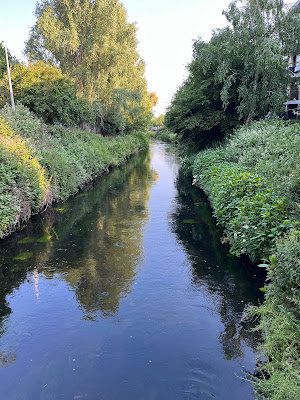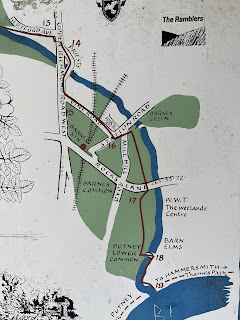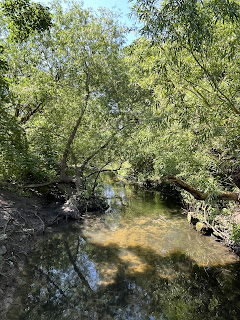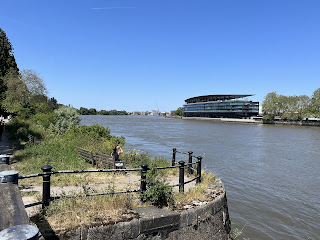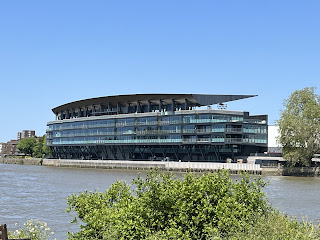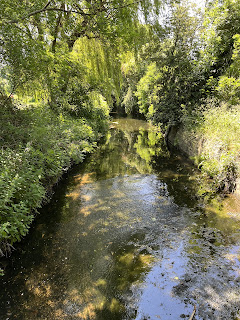I downloading some photos of one of my latest walks, I came across a note file I'd made last October whilst reading a book on a flight. The book was the one below, and is basically a compendium of Anglo-Saxon words. As I read I made a note of some words that struck me as resonant or pleasing in some way.
Some of them I was able to make connections with either modern English words with slightly different meanings (or the old word gave a refreshed interpretation of the modern word) or with some foreign (usually Nordic) words. Some of them may not be news to you, but they were to me.
Wynn = joy (win-win?)
Frith = peace (like Swedish frid)
Therefore Winifred = joy of peace. And Frederick/Friedrich = rich in peace. And maybe also Freddie Frith = Peace Peace!*
Yrtglingc = Earthling. A ploughman or farmer (was everyone else an alien?)
Wed = pledge (where we get our alternative word for 'married' from?)
Gift (pronounced yift) = gift (also Scandinavian for marry and also poison!).
Wudu-bucca = wild goat
Gāt-bucca = domesticated goat
Bucca like bok (sp?) in Swedish/pukki in Finnish
OR pūcel = goblin (various spellings, often like puck)
Hwæl-weg = ocean/sea (literally 'whale way')!**
* for non-motor cycling enthusiasts Freddie was a motorcycling champion in the mid-20th. Before my time, but I knew of him because he had a motorbike shop in his native Grimsby.
** Not sure if that last one was a pun made up by the author or not!
Postscript. The Helion book on the Army of George II by Peter Brown is turning out to be very good. Well researched and referenced, it dispels some of the myths about the Georgian British Army. To cap it all it is well written and easy to read. I'm pretty new to the British Army in this period so it is proving to be an excellent acquisition. Be interested in hearing what anyone else thinks of it.




















